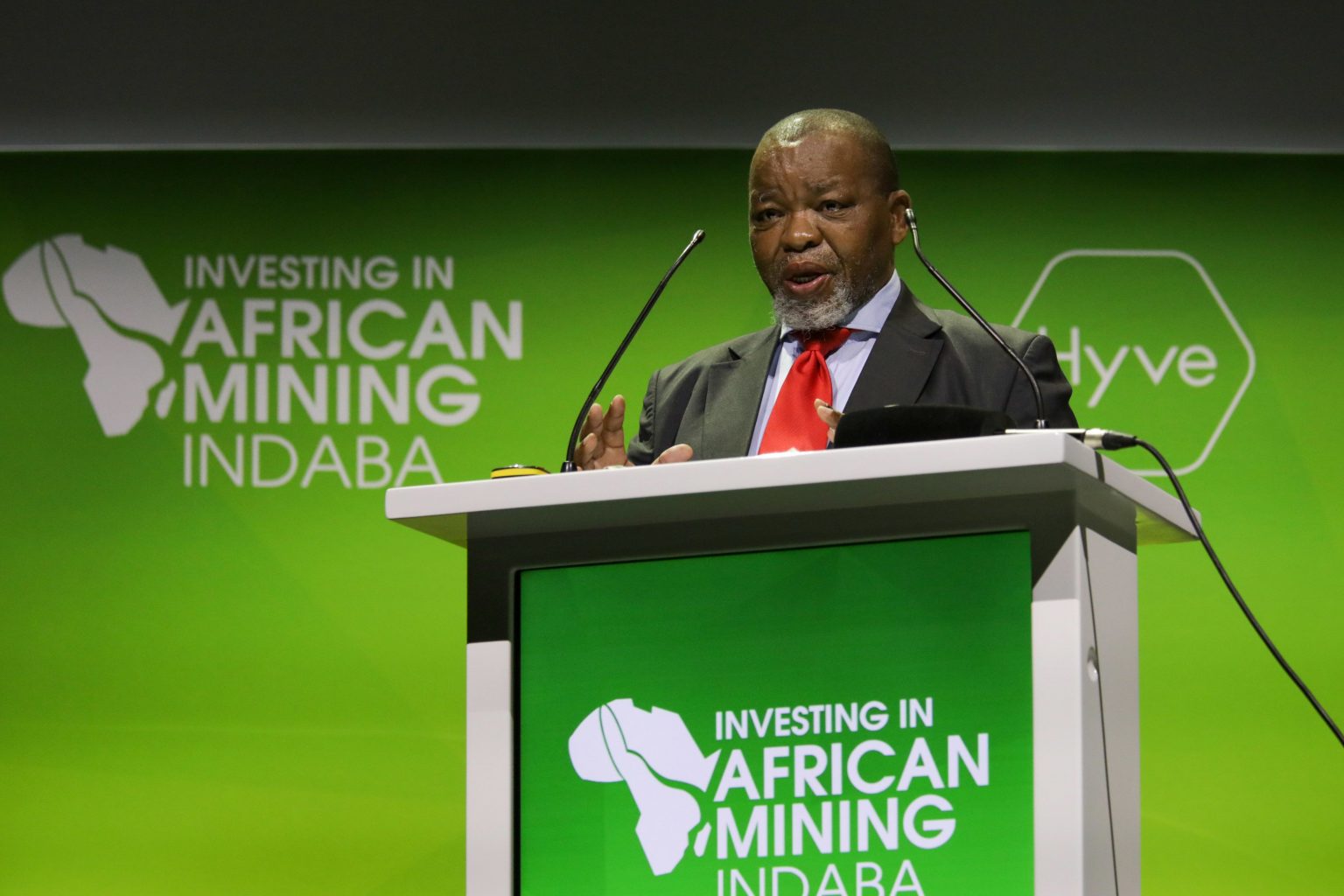Mining Indaba: For SA it's about the bottlenecks strangling growth

The Investing in African Mining Indaba got underway in Cape Town on Monday (May 9) as miners showcased their green credentials, but the persistently hot issue for SA relates to the bottlenecks strangling growth and preventing the country from fully participating in the mining boom.
The Minerals Council of South Africa said coal, iron ore and chrome companies missed out on about R35 billion last year from contracted volumes that couldn’t reach ports. Exxaro and Glencore both reported decreased sales last year, directly because of rail capacity shortfalls.
Without urgent attention, “the mining industry, the fiscus and the rail and port operator will again forgo any benefit from commodity prices by not exporting minerals to South Africa’s full potential,” it said.
This contributed significantly to South Africa being ranked among the 10 least attractive jurisdictions for mining investment in the Fraser Institute’s annual mining industry survey last year.
Infrastructure now a bigger impediment than regulations
Andrew Lane, energy, resources and industries leader at Deloitte Africa, said infrastructure bottlenecks, such as rail capacity, road quality, the high price of energy and the reliability of energy supply are now bigger impediments to the mining sector than regulations.
South Africa has slipped to 75 out of 84 jurisdictions in the 2021 edition of the Fraser Index. In 2020, SA ranked 60th out of 77 jurisdictions. The index measures perceptions of policy attractiveness and mineral resource attractiveness.
“We have noted concerns raised by miners in the [Fraser] surveys and we need to work hard to improve internal factors and influence external factors that contribute to these concerning results,” said Minister of Mineral Resources and Energy Gwede Mantashe in his keynote address.
So far, there is little evidence of this. Nor is there much evidence of government achieving anything close to its stated target of attracting 5% of global exploration spending, equivalent to about $900 million.
SA, once a mining titan in global terms, currently accounts for about 1% of global exploration.
Lane highlighted some of the bottlenecks around infrastructure, such electricity supply, labour productivity, as well as streamlining of permits and licensing, “which Mantashe undertook to reduce to less than two months”.
“Similar undertakings had previously been made and while there have been improvements, there is still room for further improvement,” said Lane.
Rail network
African Rail Industry Association CEO Mesela Nhlapo said immediate implementation of the National Rail Policy (NRP), which has opened the door to private third-party freight operators on the South African rail network, would resolve most of the problems mining houses have in moving their products from pit to port.
“Mining remains one of the key pillars of South Africa’s economy and one that should be contributing significantly to economic growth. That growth can only be boosted if mining companies throw their weight behind the National Rail Policy, which allows for independent rail operators to use the national rail infrastructure to provide additional capacity and services,” said Nhlapo.
The speech Mantashe should have given
Zambian President Hakainde Hichilema gave the speech Mantashe should have given, according to Peter Leon, partner at law firm Herbert Smith Freehills.
Hichilema told delegates that his country has zero tolerance for corruption and is open for business, with a minimum of red tape.
“He reiterated his government’s commitment to a transparent, predictable and fair investment climate with absolutely no tolerance for corruption,” said Leon.
“To this end, Zambia is currently fixing its mineral licensing system, and has placed a temporary moratorium on the issuing of licences to expedite this process. He made it clear that the time for talk by African leaders about the continent’s potential [is] over, and that the time for delivery [is] now.
“Given Zambia’s history, he also made the remarkable statement that there will be no resource nationalism in the country, but that the country will still ensure that it will support domestic economic growth and job creation. It is critical that the mining benefits the people and the country as a whole without embarking on resource nationalism, which imposes dirigiste, onerous obligations on the mining industry around ownership, procurement, and local content, which has been Zambia’s experience in the past.”
By contrast, there was no word from Mantashe on either South Africa’s progress in fixing its dysfunctional licensing system or resolving the long-standing issues around the Mining Charter, which remain mired in litigation and controversy.
Barrick Corporation CEO Mark Bristow said governments and investors are placing pressure on miners to deliver immediate benefits, rather than taking a long-term view. On a positive note, many countries are adopting a fairer dispensation.
Green transition
Mantashe reminded delegates that the transition to a green economy, one of the key themes of this year’s Mining Indaba, holds huge opportunities for Africa, which is a treasure house of “green metals” such as copper, cobalt, nickel, lithium and zinc. The Democratic Republic of Congo (DRC) and Zambia are among the world’s largest producers of copper and cobalt, with DRC accounting for about 70% of global cobalt output and half of the world’s reserves.
Anglo American CEO Duncan Wanblad set the tone for the Indaba, pointing to the group’s renewable energy initiatives, out of which it aims to supply 3-5 gigawatts (GW) of renewable energy, equivalent to 100% of Anglo’s own energy requirements.
“That would be a good portion of the 25GW of renewable energy that the country is aiming to have implemented by the end of the decade,” said Wanblad.
There is some positive movement from the Department of Mineral Resources and Energy – with Mantashe on Monday announcing a commitment to a 60-day turnaround from his department for self-generation licences for renewable energy.
He however also acknowledged that these approvals are being held back by the slow approvals from other departments, on which final approval of licences is dependent.

